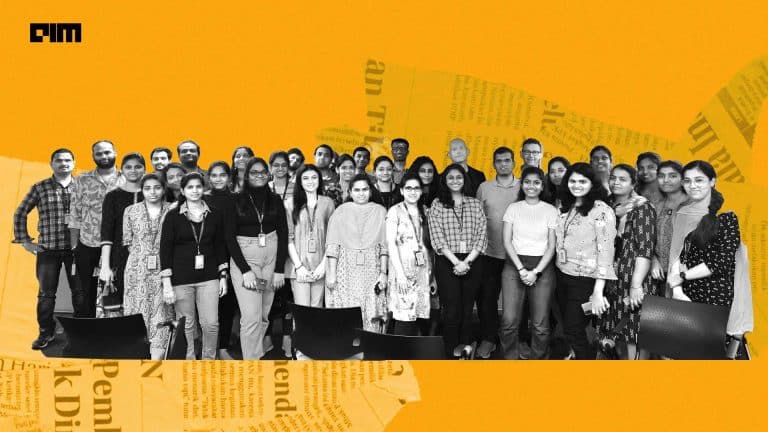Text-to-music AI platforms may not be a new phenomenon; however, a platform that allows users to create full-length songs out of simple text prompts might just be the coolest thing. In comes Udio, which is here to democratise music, and make everyone an artist.
“It’s enabling for people who are just up and coming, who don’t yet have big professional careers, the resources, time or money to really invest in making a career,” said Andrew Sanchez, co-founder and COO of Udio, in an exclusive interaction with AIM.
“It’s enabling a whole new set of creators,” he said. “I think, the way we view it [AI] is we think it’s going to be a dramatic expansion of the industry, and that it’s going to enable artists who are already making music to make better music, make it faster, and really expand to what’s possible.”
Democratising Music Creation
Udio, a relatively new entrant that raised $10 million backed by some of the biggest investors, including Andreessen Horowitz, Mike Krieger and the famous music artist will.i.am, is already making waves among music enthusiasts. The platform caters to not just musicians but even newcomers who want to experiment.
“With Udio, we are targeting a tool that is simultaneously easy to use for regular consumers, but also extremely powerful in the hands of top content creators,” said David Ding, co-founder and CEO of Udio, to AIM.
While the world debates and music artists convene to ban AI, platforms creating AI-generated music are steadily advancing.
Inspired by Artists, for Artists and Others
In a recent poll conducted in the UK with 2110 people, 4 out of 5 people think the law should forbid AI training on music without the creators’ knowledge or permission, and 2/3 of them are concerned about AI music replacing human creativity.
Looking back into time, music artists have been involved in brawls with tech companies. In 2000, heavy metal rock band Metallica sued Napster, a file sharing application company, for copyright infringement. It was probably the first time the music industry felt threatened. Now, with AI in the picture, a different version of the threat may be felt.
However, Udio has been treading carefully.
“We’ve put a significant amount of time into ensuring that our system does not generate outputs, which would infringe the rights of anyone else. This is something that we’re constantly working on and improving, and it’s an area that we’re very committed to,” said Sanchez.
“We put a lot of technical resources and human resources into ensuring that we don’t have instances like that.”
Udio also allows users to report cases where they sense the content to be problematic, which would then be audited by the platform.
Tech Behind Udio
Udio is built on proprietary models but has also used existing models for other functionalities within the platform. For instance, the platform can generate automated lyrics for which GPT-4 is used.
“People have used this, as some kind of co-writer. They first get GPT-4 to output some lyrics ideas, and then they modify it to the form that they like,” said Ding.
Nigerian vocal performance but as "funk"#Udio https://t.co/fkr7tKl1Fa pic.twitter.com/fI94UCSkmz
— Allan D Clive (@allan_d_clive) April 28, 2024
“We listen to great music that’s out there, we learn to generalise across different types of music, and then we try to model and create completely novel sounds inspired by some of these ideas, in ways that completely transform the nature of the sounds,” said Ding.
Streaming platforms were also highlighted. “Not just consuming music on Spotify or other platforms, but also taking part in the creation process, is just as important as consumption of music,” said Ding.
Interestingly, Spotify is changing too.
Music Streaming Giants Embrace AI
The traditional music streaming platforms appear to be under pressure, if not under threat, to evolve, all thanks to AI. The famed streaming platform, Spotify, which underwent three rounds of layoffs, letting go of 1500 employees, has been experimenting with integrating AI on its platform.
The recently released ‘AI playlist’ which is on beta testing in a few countries, allows users to create personalised playlists using AI chat prompts.
Music Beckoned Google DeepMind Researchers
The team of founders is not just bonded through their former employer Google DeepMind, where they worked as researchers, but their common love for music also brought them together. The three other co-founders of Udio, Conor Durkan, Charlie Nash, Yaroslav Ganin, were former Google DeepMind researchers, including Ding.
“In DeepMind, we were working on cutting edge research challenges of AI, and we witnessed how AI can enable regular people to be creative in so many areas. We saw that there was a huge opportunity for people to start creating music,” said Ding. The name is inspired from ‘audio’ and ‘studio’.
Backed by music creators such as will.i.am, who recently unveiled ‘SoundDrive’, an in-car soundscape that creates music based on your driving, Udio has a roadmap where enhanced features to simplify music creators’ experience is prepared.
“Humming or specifying, like specifying BPM, chord progressions, being able to edit sounds, is all in our roadmap,” said Ding. In addition, Udio is also rolling out new features. Yesterday, it released a new feature to help create longer and more coherent tracks.
We're rolling out new features to help you create longer, more coherent tracks.
— udio (@udiomusic) May 1, 2024
First, extensions now use a context-window of up to two minutes, increased from 30 seconds. This means verse and chorus structures are more consistent. Check out the example below! (h/t user… pic.twitter.com/Lh0BtJJmsI
There has been no shortage of AI-music generation platforms since last year, however the closest competitor to Udio is Suno AI. Recently, a Punjabi-themed Bollywood song was created using Suno’s platform.
































